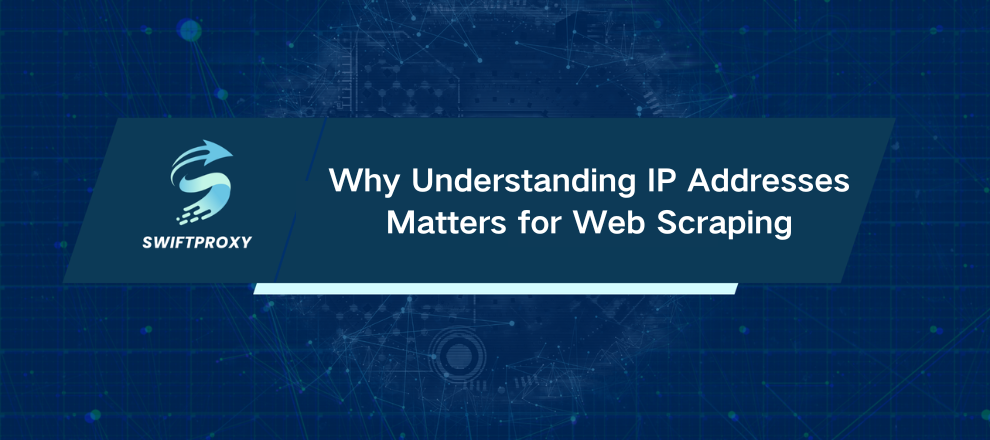Why Understanding IP Addresses Matters for Web Scraping

Every device online sports an IP address. Think of it as your digital home address — invisible, yet crucial. Without it, the web wouldn't know where to send your data requests. But when you dive into web scraping or proxies, understanding IPs isn't just handy—it's essential.
Let's break down what makes IP addresses tick and why they matter deeply for anyone serious about scraping data effectively.
The Definition of IP Address
Simply put, an IP address is a unique numeric label assigned to every device connected to the internet. It tells websites where to send information — like the destination on a package label.
But IPs also hint at your approximate location. While this might sound like a privacy red flag, typical internet users rarely have direct access to this info. Still, if you want to mask your digital footprint, proxies come to the rescue.
"IP" stands for Internet Protocol, the very foundation of how the internet routes traffic. These addresses look like a string of numbers, for example:
146.0.222.654
Your internet service provider (ISP) manages a pool of these numbers for your region and assigns one to your device. Some IPs stay fixed — called static — while others change frequently, known as dynamic IPs. ISPs increasingly favor dynamic ones to boost efficiency and cut costs.
Understanding DNS
We humans prefer words over numbers, right? Enter DNS—the Domain Name System. Think of it as the internet's phonebook, translating easy-to-remember names like Domainname.com into those complicated IP numbers computers understand.
Your ISP assigns DNS servers close to you, speeding up this translation so your browsing feels seamless.
IPv4 vs. IPv6
The internet has grown beyond what early engineers imagined. IPv4, launched in 1981, gave us about 4.3 billion unique addresses. That sounded like a lot—until we ran out.
IPv6, rolled out in 2012, solves this by expanding the address space astronomically—enough to cover every device for generations to come.
Public vs. Private IPs
Your router juggles two IP identities. Inside your home network, devices get private IPs—only visible locally. Outside, your ISP assigns a public IP that represents your network to the wider web.
This split is crucial. It means your laptop talks to your router privately, while your router manages communication with the internet. Knowing this helps you grasp how proxies and web scraping tools operate under the hood.
Why IP Addresses Matter for Web Scraping
Here's where it gets real. Web scraping tools send tons of data requests to websites. If they all come from the same IP, websites get suspicious—thinking it's a bot or an attack—and slam the door shut.
The fix? Use residential proxies. These are real IPs assigned to actual devices by ISPs, making your requests look organic. Swiftproxy, for instance, offers flexible proxy plans tailored to your scraping needs. More proxies mean less chance of getting blocked, plus access to geo-restricted content.
Final Thoughts
IP addresses are more than just numbers behind the scenes. They shape how your scraping tools interact with the web and determine whether your requests succeed or get blocked. By understanding how they work and using tools like residential proxies, you can scrape data more efficiently, access region-specific content, and stay under the radar.

















































